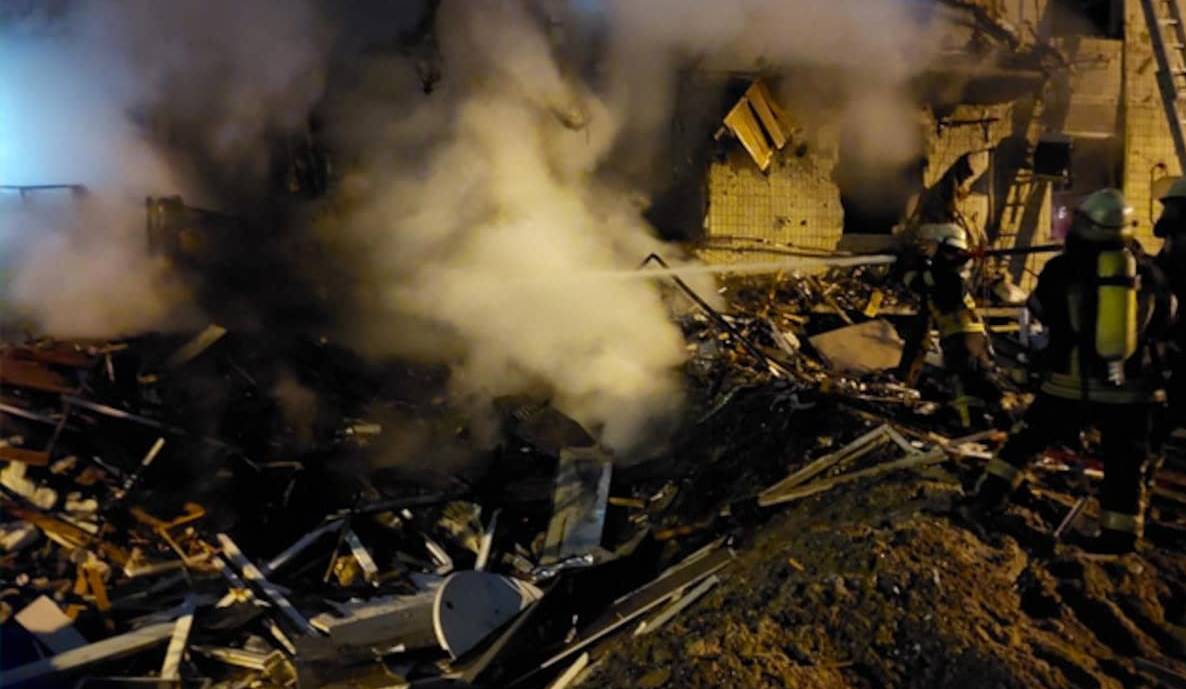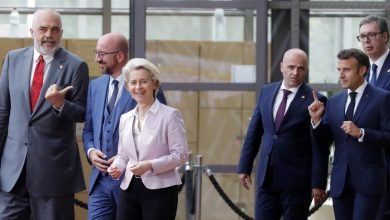
kyiv will have financial aid, experts and state-of-the-art technology to collect evidence to judge the Russian military responsible for the atrocities
Time plays in favor of impunity for the atrocities committed in the war in Ukraine, but the countries of the European Union are going to redouble the human and financial resources necessary to accelerate the investigation on the ground and try to ensure that all war crimes are tried . France, which chairs the Council of the EU this semester, has urged community partners to provide forensic experts and state-of-the-art economic and instrumental aid as soon as possible to help the Ukrainian Prosecutor’s Office and the International Criminal Court to document possible crimes. The request – made at an extraordinary meeting of the crisis cabinet that the EU activated on February 27 in response to the Russian invasion of Ukraine – has already given the first results, with offers of almost four million euros in aid and fifty experts, figures that are expected to increase rapidly in the coming days.
The Emergency Crisis Cabinet (IPCR) meeting took place on Wednesday. And according to subsequent reports, to which EL PAÍS has had access, the meeting focused on the need to increase logistical and economic support to promote the investigations of the Ukrainian Prosecutor’s Office and the International Criminal Court. This is a second line of support from the EU to the former Soviet republic after the main one tried so far, which is military aid.
A team of French experts is already on the ground, in charge of examining and identifying the bodies and taking DNA samples. The goal is to collect evidence of murder, rape or torture before it disappears or loses value in the face of a possible trial.
But France warned during the IPCR meeting that this group is on the verge of exhaustion after days of work in which they have identified an average of 15 bodies per day. Paris urges his replacement at the end of this month or the beginning of May at the latest. The mobilization of new resources began at the same appointment on Wednesday. And it will continue next week during the meeting of the committee of permanent representatives of the Member States before the EU and with a new call for the IPCR.
At Wednesday’s meeting, countries including Germany, Slovakia and the Netherlands announced the dispatch of experts. Others, like Finland or Sweden, weigh that decision. And some, like Portugal, have requested clarification on the security conditions that surround professionals who carry out an investigation in a country at war.
The Ukrainian authorities have requested the dispatch of international experts and state-of-the-art instruments to carry out, without delay, the autopsy of hundreds of bodies in the kyiv area and the documentation of possible war crimes attributed to the troops of the Russian army, which occupied that part of Ukrainian territory for several weeks.
Both the European Commission and the French presidency insisted during the IPCR meeting on the “urgency” of facilitating assistance because the corpses must be analyzed without further delay. The needs, according to the aforementioned report, are very broad and range from experts in fingerprints and ballistics to forensic doctors who can certify the exact cause of each death.
In terms of human resources, France leads the support with 10 of the 11 researchers posted on the ground. But those numbers are expected to grow rapidly. The day after the IPCR meeting, the President of the Spanish Government, Pedro Sánchez, already announced the dispatch to Ukraine of eight experts from the Ministry of the Interior, as well as 29 doctors and 10 forensic activities officers, an offer that would place Spain as the country with the most resources devoted to research.
In terms of economic resources, the first balance on new contributions, made at the Wednesday meeting itself, already totals 3.97 million euros from 12 EU countries, with Germany and the Netherlands at the forefront, with one million euros each one. But the figures will increase predictably next week when balance will be made again and Spain or Italy could already be added.
The opening of criminal investigations gained momentum with the discovery of mass graves and executed people in Bucha, a city located north of kyiv, after the withdrawal of Russian troops, who unsuccessfully besieged the Ukrainian capital. A part of the international community, with Europe in the lead, has proposed that the crimes committed in the war launched by Russian President Vladimir Putin be prosecuted before Ukrainian or international justice. And the collection of evidence and evidence has begun quickly, although the scale of the killings committed has overwhelmed the work of investigators. And the task could increase as new killings are discovered in other parts of the country.
The President of the European Council, Charles Michel, visited one of the scenes of the atrocities on Wednesday: Borodianka, also visited by Pedro Sánchez. “They are war crimes and they must be punished, they must pay for what they have done,” Michel said in kyiv after meeting with Ukrainian President Volodymyr Zelensky. “We are determined to provide the necessary support for international justice and justice to prevail because there is no peace without justice,” added Michel.
The prosecutor of the International Criminal Court, Karim Khan, has already requested an investigation into alleged war crimes committed in Ukraine since 2013, when, according to kyiv, Moscow’s aggression began. Khan’s request is supported by 41 countries, including EU partners. Ukraine’s Prosecutor General, Irina Venediktova, has stressed that “the bulk of the investigation and most of the accusations will have to be made by Ukraine itself.”
Venediktova already has the support of French experts. And on Friday she announced the arrival of a first team of police and coroners from Slovakia. The kyiv authorities have also appealed to EU countries to provide specialized equipment that is not available in Ukraine as soon as possible, such as drones to photograph the areas where the alleged war crimes have been committed.
“Modern technologies are going to allow us to clarify many details [about the perpetrators of the crimes],” Zelenski said after his meeting with Michel. “We are going to track every name, every address, every bank account,” assured the Ukrainian president. And he promised: “We will do everything possible to bring to justice every Russian military officer or commander guilty of war crimes.”



